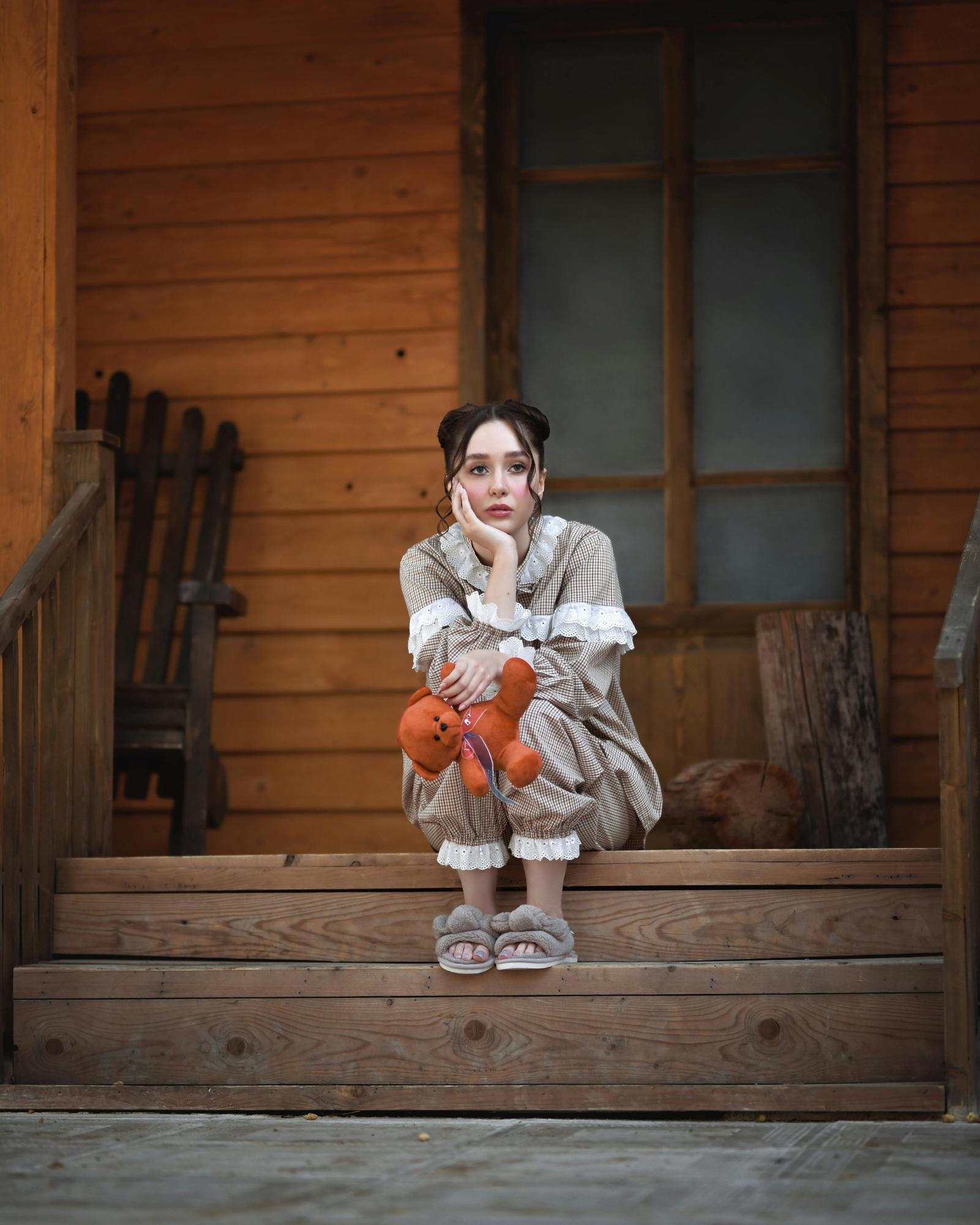Every Monday through Friday at the end of her work day, Samantha Ferguson gets in her car and drives home. Leaving late in the afternoons means she might hit rush hour traffic on the way. She’s been talking to young students all day, so she doesn’t necessarily want to see or talk to anyone else. She brings all her bags and any schoolwork she may still have to grade with her. As a fourth-grade teacher in her first full-time position, she gets to work early and leaves late. As she drives home, she’s tired. She wants to get home, relax and have some time to herself. But that rarely happens.
Ferguson lives with her parents and two younger siblings. She’s 22 years old, so like many young adults or 20-somethings, she doesn’t have a place of her own yet. But just because her situation is common among people her age doesn’t mean it doesn’t come with any difficulty.
In fact, Ferguson’s situation seems to be more common in the United States than ever at this moment in time. Since the COVID-19 pandemic in 2020, the percentage of young adults — aged 18 to about 29 — who live at home with their parents has significantly increased. According to Pew Research, in July 2020, 26.6 million young adults lived with one or both of their parents, which is about 52% of all young adults. This was a 2.6 million increase from February 2020, when that percentage was 47%. The pandemic forced many young adults to return to their parent’s homes. Whether it was colleges shutting down, or losing their jobs and no longer being able to afford their previous living situations, the most logical thing for many young adults to do was to move back in with their parents.
Since 2020, the situation of young adults looking to live on their own has slightly improved. According to a Harris Poll for Bloomberg survey of in August 2023, the percentage of young people living with their families is now roughly 45%. But many young adults remain at home and are still finding it difficult to move out.
Living at the parents’ home is not a new concept in the United States, but it has not always been as common as it is right now. Prior to 2020, the highest measured value of young adults living with their parents took place at the end of the Great Depression, in the 1940 census, when 48% of young adults lived with their parents, a survey by Pew Research shows. Pew also notes that the peak may have been higher during the height of the Great Depression in the 1930s, but there is no data for that period.
Living with parents as a young adult also seems to be more common in other parts of the world than it is in the U.S. Another poll by Pew Research Center found that young adults in much of Europe are even more likely than those in the U.S. to live in their parents’ home. In some parts of the world, multi-generational households are much more common. The transition to adulthood often includes key life events such as the age when someone leaves their parents’ home, starts working or gets married. These events happen to people in all parts of the world, but often at varying times throughout young adults’ lives depending on where they live.
“If you look at these events in different parts of the world like the U.K., U.S., Asia, Latin America, Africa, they’re so different,” Maria Sironi, an associate professor in quantitative sociology at the University College London, said. “Even within Europe, there is a very clear divide between Southern European countries and Scandinavian countries. In Scandinavian countries, young adults leave their parental homes and become independent very early. If you look at countries like Spain, Italy, or Greece, people leave the parental home very late, usually to get married.” Many things account for the variety across countries including different cultural norms, governmental support, how close families are and personal preferences.

Moving out of their parent’s house is often seen as a rite of passage for young Americans. Some young adults feel like it is a bad thing to still be living with their parents after a certain point. But in the wake of the pandemic, the cost of living and just about everything else, has been very high. More people are starting to understand that it is not as easy to move out of their parent’s house as it once was. The odds seem to be stacked against young adults who are trying to find their financial footing and be on their own in the world. Over 40 million Americans have student loan debt they need to pay back, and Student loan debt in the U.S. totals over $1.7 trillion. The average federal student loan debt is about $37,000 per borrower, and for private loans, the average is about $54,000 per borrower, according to the Education Data Initiative. The cost of living has gotten significantly more expensive. Many jobs do not pay enough to keep up with the high living costs. In New York, the median hourly wage for all occupations is $26.10 according to the Department of Labor. In New York State, the cost of living is 30% higher than the national average according to RentCafe. (The cost of living in the state varies depending on the city you live in, with the most expensive place to live being New York City.)
In addition to the cost of living becoming more expensive, the housing market was greatly affected by the pandemic in ways that are still felt today. That period of time had significant impacts not only on the housing market itself, but on the way people view their housing and living situations.
“Once the pandemic hit, people weren’t really sure where they wanted to live — whether they still wanted to live within cities or whether they still wanted to live with roommates,” Arthur Acolin, an associate professor in the Runstad Department of Real Estate at the University of Washington, said. “There were a lot of those choices about how we organize ourselves, where and how much housing we want… All of those elements, what it means to have a home and a space in which we are comfortable, really changed.”
All of these factors have been on young adults’ minds especially. Living with parents is almost always cheaper for young adults than living on their own. Many young adults may want to move out and be on their own but cannot afford the rent they would need to do so. Those who don’t want to pay rent and would rather buy property often struggle to get and afford a mortgage.
“We have had a very big increase in rent in 2020, 2021 and 2022,” Acolin said. “But the bigger issue for pricing and homeownership is the current mortgage rates that are much higher than they have been over the last 20 years and make it difficult for anyone to become a homeowner at this point.”
Ferguson would appreciate having her own space right now, but she does not want to rent a place because she feels like the money would be going nowhere. She would rather save up for a down payment on a house and work towards attaining a mortgage. So right now, saving up her money is one of the most positive parts about living with her parents after graduating college.
Ferguson started college at SUNY Oneonta in 2018 to become an elementary school teacher. She lived on campus in a dorm before moving off campus in later years. She’s been living at home with her parents and two younger siblings since January 2022 when she started student teaching. She graduated in May 2022, and now she is a full-time teacher in Marlboro, New York.
At first, she says, moving back to her parents’ was exciting. “I feel like when you first move home, it’s very positive because you haven’t lived with your family in a while. And you’re kind of figuring out who’s home with you from high school, kind of like finding your friends again,” she said.
But the excitement eventually wore off, and she found herself missing the independence she had at school. She struggles with having to navigate everyone else’s schedules in the house. When she has to get up early to go to work, her siblings have to get up early for their respective obligations as well. Simple things like brushing her teeth, getting ready in the bathroom or making breakfast in the kitchen can be hard for Ferguson to do because other people are trying to do all of those things at the same time.
“I want to be on my own schedule,” she said. “I want to have my own bathroom to get ready instead of with my siblings in the morning.”
Another reason Ferguson is looking forward to eventually moving out is because she and her fiancé will be able to live together. Since they both live with their parents, it can be difficult for them to spend as much time together as they would like or get enough privacy. Living together on their own would solve that issue.
“Having your own space is definitely important because what happens when you live separately is that you kind of lose sight of the fact that your partner is supposed to be your priority now,” she said. She looks forward to a future where she can share a space with her fiancé and live their lives together.
Until then, Ferguson is trying to balance her desire for privacy and the reality of living with her family. Just like in the mornings, it can be hard to function after work with everyone else in the house. She wants more privacy to relax than she has now.
“When I do come home and it’s 7:30 and I’ve been at work since seven in the morning, I don’t want to have a conversation with my parents. I don’t want to sit down at the dinner table, I just want to eat and go to my room.”
Ferguson said her parents enjoy having her home and appreciate that she’s able to help around the house. They support her desire to move out in the future, but they also get the difficulties that she faces in trying to do so.
“They’re understanding that it’s a completely different world than when they were moving out,” Ferguson said. “So they’ve been very graceful about that.” She even predicts that her relationship with her family will be better once she moves out. Once she doesn’t see them all the time, she says she will be able to appreciate the time that they spend together even more.
Parents’ opinions towards their young adult children living at home, as well as their relationships with their kids, vary from household to household. Not every situation is entirely positive, but in some instances, cohabitation can be positive for both the parents and the children.
“What’s happening in many instances is young people are moving home, initially, and parents are helping them out. And it turns out, they’re helping their parents — whether their parents are older, whether their parents need some help and things around the house, or whether they just get along really well,” Joyce Serido, a professor in the College of Education and Human Development at the University of Minnesota, said. Serido researches how families communicate and interact about finances and how that affects the financial behaviors of young adults. In terms of young adults moving back in with their parents and relying on them financially, she says it can be beneficial for parents to have their young adults living at home, depending on their own expectations and feelings.
“I love it. But that’s me, because, you know, I like having them around,” Dottie Nunes said. Nunes has three sons living with her at home in Orange County, New York. Nunes’s sons are 27, 26 and 24, and she is glad to have them at home with her. As a mom, she especially appreciates the feeling of safety that comes with having all her children under one roof. “I can see them every day. And I feel safe knowing that they’re home when I hear sirens down the road,” she said. The family is close together, and she likes being able to help them out during this period of their lives.
Lack of financial stability makes it hard for young adults like Nunes’s sons to move out, which she understands. “I’m sure they probably would like to spread their wings,” she said. “But with the economy and all that kind of stuff, unless you really have a direction, it’s hard to make ends meet to pay those kinds of prices.”
Her middle son, Frankie Nunes, 26, does feel ready to spread his wings again. He moved back to his parents’ home after graduating from college in 2019 and said that going from living with friends at school to living with his parents again was a bit of a readjustment. He started looking for jobs, eventually finding one in Minnesota as a quality assurance tester for a videogame software company. He moved there from New York at the beginning of 2020.
He found living on his own again with his friends was refreshing. “I was living with friends and people my age, it’s just easier,” he said. But he found that Minnesota was not the best place for him to be at that time, especially during the pandemic. He got a different job in the same field and was able to start working from home. So at the beginning of 2021, after living on his own for about a year, he found himself moving back with his parents once again. “I figured I could just save money on rent,” he said.
Moving back for the second time, he said, was different than the first time because he was now working a full-time job from home instead of looking for jobs post-graduation. He spent a lot of time working in his bedroom, and he found it difficult to balance time between working and spending it with his family and friends. And since he’s been at home, he doesn’t have people over as frequently as he did when he lived on his own. If he wants to have friends or a partner over, he says his parents don’t have a problem with that, so long as he lets them know about it. But it just happens less frequently now than it once did, so it was a bit of an adjustment. Even if he may not have as much independence, he does enjoy being able to save money while being around his family.
After going back to school to get his master’s in screenwriting, Frankie is now looking to pursue a career in that field. Living with his parents isn’t bad for him, he’s definitely ready to get back out into the world on his own.
It’s normal for young adults to crave independence, especially after they get a taste of it if they have lived on their own before or went away to college. But not everyone feels quite ready for that kind of independence so soon after graduating.
“I know so many people treat going away to college as if it’s a permanent thing.” Emily Nagle, 23, said. They say, ‘Oh, yeah, I’m moving out.’ That’s why I was so scared to move to start college. I thought I was gone for good, that was going to be it — I was never coming back. But what no one really talks about is that going away to college, you’re not really living there. You’re just going to school there, that’s it. So I knew I was going to have to come back eventually.”

Nagle is one of those kinds of young people who aren’t ready just yet to move out of their parent’s home. She graduated from SUNY New Paltz in 2022 and moved back to her parent’s house in Nassau County, New York, where she currently lives with her parents and younger brother. She said that living at school was definitely an adjustment when she started college, but it was a lot of fun. But she always knew she would return home after college.
Living with her family offers her a lot of freedoms she didn’t always get to enjoy while she was at college. She didn’t like the food on campus, but now she has access to her kitchen and can make whatever she wants. The town her college was in was tiny, so she felt like there wasn’t much to do around her. And without a car, she couldn’t really get anywhere. She no longer feels isolated — she can go practically anywhere or do anything she wants, and it’s much easier to get places and see her friends.
Nagle does experience a bit less freedom than she enjoyed at college. While her parents do let her have friends over, she can’t do it as spontaneously or as late at night as she would if she lived on her own. She doesn’t currently have a partner, but when she did in the past, she said she often went to his house instead. When she did have him over, she said her parents didn’t mind, but there was a certain degree of privacy they lacked. She always tries to respect her parents and their space whenever she brings anyone over.
She’s very close with her family, so she enjoys the time she gets to spend with them now. “It’s the little things that I missed when I was away. Like, just spending Saturday mornings, eating breakfast and watching television [with them], things like that.”
Sometimes Nagle commutes into the city for work with her brother who commutes there for college. On other days, she works from home and likes getting to see her family during the day. Sometimes her dad works from home during the week, too. So she gets to work from home and spend time with her family, all while saving money by not paying for rent. And her parents love having her in their home, so she feels like she’s in a good place.
While living with parents can be beneficial for young adults in a difficult place financially, not everyone feels that it is the best situation, especially for a long period of time. Some people think it is really important for young adults to move out and stop relying on their parents even if it is especially difficult right now.
“I’ve never had somebody say, ‘in five years, I just want to be living with mommy and daddy, I just want to be the home.’ It’s always ‘I want to be in an apartment, I want to be independent and have a car and have a job,’’ psychologist Jack Stoltzfus said.
Jack Stoltzfus aims to help parents who need assistance getting their children to become independent. He has proclaimed himself “America’s Launch Coach.” He doesn’t mean launch as in a space launch or launching a career of some sort. He means it in terms of “launching” a young adult into the world on their own. The opposite of this is often called a failure to launch, which refers to a young adult being unable to leave home and support themselves. Stoltzfus aims to help parents who have young adult children who are struggling to become independent by providing counseling and resources. If you look at his website Parents Letting Go, Stoltzfus does not come from a completely negative standpoint. He’s a parent himself, and he understands it can be difficult to navigate the path to letting go of your children. But he still focuses on actually getting them out of the house and believes it is up to the parents to facilitate it.
After spending most of his career focusing on counseling adolescents, he started to focus on parents of young adults around 2015. “I think there’s kind of a bias in our culture that once your kids turn 18, or at least 21, you’re done [parenting]. Well, that’s not the case, particularly these days, because parents stay involved a lot more with their kids, even into their 20s. And sometimes that becomes a little kind of a challenge, how to facilitate the person is leaving in a healthy manner out of the family.”
Stoltzfus has developed six practices for parents that he recommends to parents that he believes will help facilitate the process of launching young adults into their independence and help them let go in a loving way. The first is “understanding,” meaning parents should listen in a nonjudgmental way. The second is “unconditional love,” meaning affirming that the parents care about their young adult. Third is “apology,” meaning apologizing for things you may have done wrong as a parent. The fourth is forgiveness to yourself for those things you may have done wrong. The fifth is “supportive integrity,” meaning that parents need to know when to support their child and when to say no. And the sixth is “letting go in love,” which means saying goodbye to a young adult while staying connected to them.

These practices represent more of an ideal situation. It would be great if all parents could follow them and set their young adult children on the right path towards moving out and being independent. But it’s not always possible. There is only so much ideas like these practices can do if it’s borderline impossible for young adults to afford to live on their own.
When he was growing up, Stoltzfus said there was no expectation that he would be staying at home a long time, and that was the norm at the time. But nowadays, it is so much tougher. Stoltzfus does acknowledge that not every situation is the same, but still believes that it is important to both parents and children that they become independent.
“I’m sure it’s different for everyone,” he said. “I’m sure a lot of parents would enjoy having their kids home, but they also want to see their kids succeed and be on their own. And the same goes for the kids and young adults themselves. Obviously, it’s nice to maybe save money or just have it a little easier than with your parents, but there is probably part of them that’s like, ‘I want to be on my own, I want to do that.’”
But is living at home with your parents and not being independent in your 20s and early adulthood truly all that bad? Does it really require outside intervention and steps to get a young adult out of the home? When some people think of young adults still living with their parents, maybe they see a lazy kid who doesn’t want to do anything for themselves. But oftentimes, that is clearly not the case. Young adults aren’t lazier than past generations, they’re just working with a much harder set of circumstances than young adults in the past faced.
Every young adult’s circumstances are different. Joyce Serido, the University of Minnesota professor and family financial researcher, says that different circumstances warrant different responses. Rather than focusing solely on the idea that young adults should prioritize moving out, it is more important that the expectations within the family are clear. “From my perspective, I try and tell people, is it clear ahead of time what the relationship is supposed to be? What are the responsibilities? What is the timeframe?” she said. With proper communication, there can be mutual understanding between young adults and their parents, and neither feels pressured in their situations.
The bottom line is that young adults should understand what’s best for themselves. Maybe buying a house makes perfect sense for someone, or maybe renting an apartment makes sense for somebody else. And maybe living at home and being more financially dependent on parents makes the most sense for others. It’s all about your specific situation, not getting caught up on what somebody else is doing or what society says you should be doing.
It’s also important to understand that the issues that make it hard for young adults to move out right now probably will not disappear in the very near future. Young adults today are still going to face high rent prices, inflation and increasing cost of living in the next few years of their adulthood.
“If the economy gets back on track, and there are lots of full-time permanent jobs everywhere, maybe young adults will have the opportunity to move out earlier and not move back in with their parents,” Maria Sironi said. “If that doesn’t happen, then it’s on different countries’ governments to do whatever they can to put young adults in the position to leave when they want to leave. It’s all it’s all about opportunities and constraints.”
There’s nothing wrong with wanting some space from your parents, or just wanting to experience being out in the world on your own. It’s different for everyone. Both Samantha Ferguson and Frankie Nunes appreciate the benefits of living at home with their parents, but they value their independence and hope to gain some more soon. But there isn’t much wrong with wanting the opposite of that either.
“I just personally don’t really feel ready to move out yet,” Emily Nagle said. She’s taking things day by day. She’s not currently in a position to move out yet, and she’s okay with that. “When I moved home from college, I said to my parents, ‘What, am I supposed to move out?’ And they said, ‘We like having you around, just stay as long as you want,’” she explained. “I’m almost 24. And I’m seeing people in different places, everyone’s growing at different rates. And you can feel a kind of pressure, like, am I supposed to be doing this? But really, it’s whatever you’re comfortable with.”








